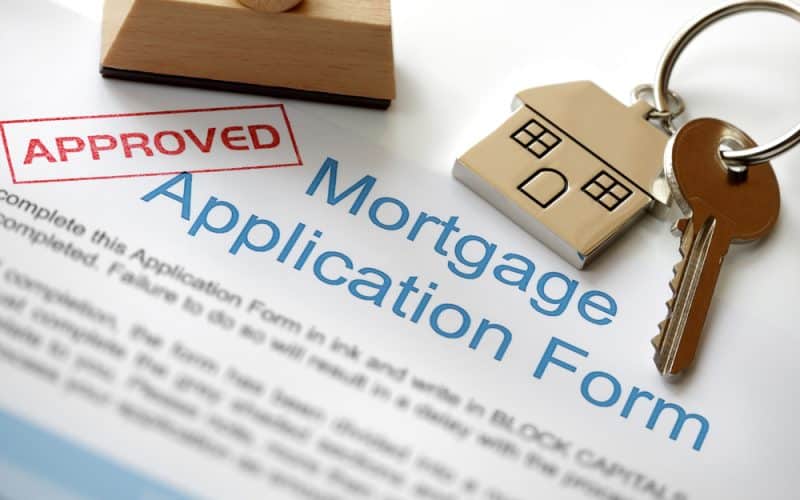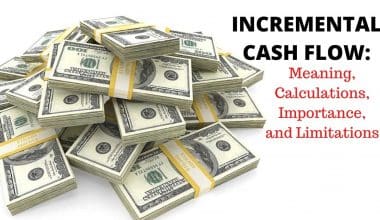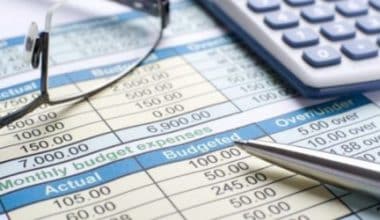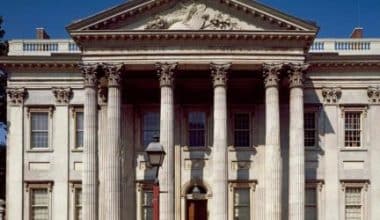For a lot of people, owning a home is a dream come true. But getting a mortgage is one of the few steps it takes to get there.
More so, because it is a major financial decision, it’s important you understand what is involved in getting a mortgage before you go ahead to do so.
Hence, if you’re contemplating between homeownership and how to get started, then this article is very handy. As it contains all you need to know about Mortgage, its meaning, types, and processes.
Let’s start with a simple definition of a Mortgage.
What is a Mortgage?
A mortgage is a loan used by a borrower to purchase or maintain a home, or any other form of real estate property.
Usually, the borrower agrees to payback the loan over an agreed period of time, and in series of regular payments. The property serves as collateral for the loan.
Although it’s possible to get a loan that covers the entire cost of a home, it’s more common to secure a loan for about 80% of the value of the home.
More so, the cost of a mortgage depends on the duration of the loan (e.g. 20 years), and the interest rate the lender charges.
Also, a legal mechanism is usually involved, that permits the lender to take possession of the property and sell it to pay off the borrowers debt.
Mortgages are also called “Mortgage loans,” and are a good way to get a home if you don’t have the cash yet.
RELATED ARTICLE: Financial Audit: All you need, Simplified!! (+ Detailed pdf)
How does a Mortgage Work
When you receive a mortgage, the lender gives you an agreed amount of money known as “Capital” to buy the home.
You agree to pay back the loan with interest over a period of time. This also means that you don’t have complete control of the home until you pay off your mortgage.
Typically, a mortgage consists of two elements: Capital and interest.
The capital is the specific amount of money the lender gives a borrower to purchase a home. For example, if you borrow $5,000 from a lender to buy a home, the entire $5,000 is the capital.
While interest on the other hand is what the lender charges you to give you that money. In other words, you can say it is the amount the lender charges you to borrow the capital.
The interest is determined by two things says Rocketmortgage: current market rates and the level of risk the lender takes to lend you money. Although you can’t control the current market rates, you can still control how the lender sees you.
Having a high credit score, a good and stable source of income, and few red flags on your credit report shows the lender that you are capable of paying back your mortgage loan. More so, it shows the lender that you are less of a risk, thereby reducing your interest rate.
The amount of money you can borrow depends on what you can comfortably afford and the market value of the home. This is because the lender can only give you an amount that is equivalent to the value of the home.
When paying back the loan, borrowers tend to pay in installments, usually monthly which consists of both the capital and interest charges.
READ ALSO: Straddle Options: Best Examples to Master any Strategy
The Mortgage Process
Individuals who seek to get a loan start by applying to one or more mortgage lenders. Then the lender will request for evidence that shows that the borrower is capable of repaying the loan. Evidences can include bank statement, tax returns, proof of current employment, and credit card history.
If the loan application is approved, the lender will give the borrower the agreed loan amount at a specific interest rate.
Home buyers can apply for a mortgage when they’ve seen a property to buy or when they’re still shopping. If the application is approved, they receive a “pre-approval” pending when the mortgage agreement is finalized.
Having a mortgage “Pre-approval” aids your home search, as home sellers know that you have money to pay for the house.
Once the both parties (buyer and seller) agree on the terms of their deal, they can meet for a closing.
The seller will then transfer ownership of the property to the buyer and receive the agreed amount of money, and the buyer will sign any remaining mortgage documents.
Parts of Mortgage Payment
Depending on your mortgage agreement, your mortgage payment comprises of the following charges;
#1. Property taxes
The lender may choose to collect the property taxes associated with the house as part of your mortgage payment.
In such a situation, the money collected for taxes is kept in an escrow account, which the lender will use to pay the home taxes when they’re due.
#2. Mortgage Insurance
Your mortgage payment may also include mortgage insurance which is known as Private Mortgage Insurance (PMI).
This insurance is required by most lenders when the buyer pays a down payment that s less than 20 percent of the home’s buying price.
#3. Homeowners Insurance
This insurance gives you protection in the case of a disaster. In such cases when you pay your insurance bill in your mortgage payment, the insurance bill is kept in an escrow account till the policy premiums are due.
READ ALSO: Best mortgage lenders: 2023 picks updated (+ detailed guide)
Types of Mortgage
Once you’ve decided to take a mortgage loan, it’s time for you to think of what type of loan you want to take. There are different types of mortgage loans, and we will list them below.
#1. Fixed-rate Mortgage
The name of a Mortgage typically tells you what type of interest rate to expect. For a fixed-rate mortgage, the interest rate is agreed upon and remains the same for the life of the loan.
Usually, fixed-rate mortgage are available for several duration, up to 30 years. Paying the loan over a long period of time makes the monthly payment more affordable.
In general, for this type of loan, regardless of the duration of your loan, the interest rate will remain the same. This is why fixed-rate mortgages are better for those who prefer a stable monthly payment.
#2. VA Mortgage
The VA loan is a loan available for active-duty military members and veterans. It is guaranteed by the U.S. Department of Veterans Affairs that requires little or no money down.
VA loans are a benefit of service for those who have served the country. And it is really a good option because it allows you get a house without a down payment or private mortgage insurance.
#3. Adjustable-rate Mortgage (ARM)
From the name, you can easily see that the interest rates can be increased or lowered as rates change.
This type of mortgage can be a good option when the interest rate is low when compared to the the rate of the 30-year fixed mortgage loan.
An example of an ARM as given by Bank rate is a 5/1 ARM and/or a 7/1 ARM. In a 5/1 ARM, the 5 stands for an initial five-year period during which the interest rate remains fixed while the 1 indicates that the interest rate is subject to adjustment once per year.
During the adjustable-rate part of an ARM, the interest rate is charged based on a standard financial index, such as the key index rate established by the Federal Reserve or the Secured Overnight Financing Rate (SOFR).
While ARMs make it difficult for the borrower to watch his/her spending and establish their monthly budgets, they are popular because they come with lower starting interest rates than fixed-rate mortgages.
Borrowers, assuming their income will grow over time, may seek an ARM in order to lock in a low fixed rate in the beginning, when they are earning less.
RELATED ARTICLE: Microfinance: Definition, Importance, History, Institutions (+ Loan details and Tips)
#4. FHA Mortgage
FHA Mortgage loans are guaranteed by the Federal Housing Administration, and is a popular choice among homebuyers.
This is because FHA loans have low down payment and credit score requirements. You can get an FHA loan with a down payment as low as 3.5% and a credit score of 580.
Because this is a government-backed loan, the lenders will receive reimbursement if the borrowers fail to pay off the loan. This reduces the risk lenders are taking on by lending you the money.
#5. Balloon Mortgage
In a balloon mortgage, the payments will start low and then grow into a large sum before the loan ends.
This type of mortgage is for buyers who will have a higher income towards the end of their loan or borrowing period than at the beginning.
It is also ideal for those who intend to sell the property before the end of the loan period. But if you don’t intend to sell the property, then you may require refinancing to stay in the property.
In general, balloon mortgages are one of the riskier types of mortgages.
#6. USDA Loans
USDA loans is a government-backed loan, for homes in eligible rural areas (although many homes in the suburbs qualify as “rural” according to the USDA’s definition.) To get a USDA loan, your household income can’t exceed 115% of the area’s median income.
This type of mortgage is a good option for qualified borrower’s because it allows you to get a home with 0% down payment.
In some cases, the guarantee fees required by the USDA program cost less than the FHA mortgage insurance premium.
Mortgage Terminologies
Before you apply for a mortgage, there are several terms you should be familiar with. Below are the most used terms that you should know, to enable you have a smooth experience
#1. Down Payment
Down payment is the upfront fee a buyer pays to purchase a home. Typically, buyers pay a percentage of the home’s value first then get the rest as a mortgage.
A larger down payment can increase a buyer’s chances of getting a lower interest rate. And different mortgages have different minimum down payments.
RELATED ARTICLE: Money Management: Top 10+ Easy Tips to Becoming a Pro
#2. Escrow
An escrow account is an account that holds the portion of a borrower’s monthly mortgage payment that covers homeowners insurance premiums and property taxes.
An escrow account for insurance and taxes is set up by the mortgage lender, who makes the insurance and tax payments on the borrower’s behalf.
This account allows the borrower to conveniently pay for his expenses in small installments monthly.
#3. Amortization
Amortization is the process of paying off a loan in installments over a long period of time. Part of the payment goes into paying the principal amount, while others go into paying the interest rates.
When a loan fully amortizes, it means it’s been paid off entirely by the end of the amortization schedule.
#4. Promissory Note
A promissory note is like an IOU that contains all the guidelines for repayment. It is the written agreement that contains all the terms of the mortgage loan. These terms include;
- Interest rate type (adjustable or fixed)
- Interest rate percentage
- Duration to pay back the loan (loan term)
- The amount borrowed to be paid back in full
Once the loan is paid back in full, the promissory note is given to the borrower.
#5. Underwriting
Mortgage underwriting is the process by which a lender assesses the risk involved in lending money to a borrower.
The underwriting process requires an application and considers several factors like the borrower’s credit score and report, debt, and value of the property they want to buy.
Mortgage Law
Mortgage law refers to the legal mechanisms involved in securing mortgages and loans. According to Wikipedia, a mortgage is a legal instrument that is used to create a security interest in real property held by a lender as a security for a debt, usually a loan of money.
In most jurisdictions, mortgages are strongly associated with loans from real estate rather than other properties.
More so, Mortgages may be legal or equitable. It may take one of a number of different legal structures, which depends on the jurisdiction under which the mortgage is made.
Common law jurisdictions say there are two legal aspects of mortgage;
- Mortgage by demise
- Mortgage by legal charge
#1. Mortgage by demise
In a mortgage by demise, the lender remains the owner of the mortgaged property until the loan is repaid in full. This kind of mortgage gives the creditor full rights of the property on the condition that the property will be returned on full repayment.
RELATED ARTICLE: Financial Leverage: Simple Guide to help you get started, with Examples (+ quick tips)
#2. Mortgage by legal charge
In this form of mortgage, the debtor remains the legal owner of the property, but the creditor has enough rights over the property to enforce their security.
To protect the lender, a mortgage by legal charge is usually recorded in a public register. Mortgage lenders run title searches of the property in question to be sure that there are no mortgages registered on the debtor’s property.
What Is Mortgage and Loan?
A loan is the amount of money taken out from a financial institution to fulfill specific objectives or demands. It could be secured or without collateral. A mortgage is a claim made against an immovable object that is pledged as security for a debt.
How Much Money Do You Need to Start a Mortgage?
If you’re a first-time home buyer, you’re probably searching for a mortgage package with a 90% or 95% loan to value (which means you’ll need to have a 5% or 10% deposit set up). Risk is the deciding factor when borrowing money in any capacity.
Who Qualifies as a First-Time Buyer?
First, let’s address the response provided above: An actual first-time buyer is someone who is unmarried and has never owned a home before anywhere in the globe. Same goes for couples when neither member has ever purchased a home before.
What Salary Can I Get a Mortgage On?
The majority of lenders base how much they’re willing to offer you on multiples of your earnings. Most employers will offer you four times your yearly pay if you qualify, some employers may offer you five times, and some employers may go as high as six times if the conditions are appropriate.
What Mortgage Can I Get Earning 30K?
If you pass affordability checks, most lenders will let you borrow up to 4.5 to 5.5 times your yearly earnings. However, the amount you can borrow will vary between lenders. To put it another way, if you make £30,000, you could be able to obtain a mortgage for about £150,000.
Can I Get a Mortgage on 20K a Year UK?
A mortgage can definitely be obtained on a salary of £20,000 per year, which is a respectable income.
Can I Get a Mortgage on 25K a Year UK?
Applying a multiplier to income traditionally determines the size of a mortgage. If you make £25,000 per year, for instance, a lender might multiply that sum by four to come up with a mortgage offer of £100,000. It’s uncommon for a lender to increase your revenue by much more than four times.
Conclusion
A mortgage is a good option if you want to get a home but don’t have enough cash to do so.
I hope this article explains all you need to know about Mortgages.
All the best!
FAQs
What is difference between mortgage and loan?
A loan is the sum of money borrowed from a financial institution to meet various goals or requirements. It may be collateral-free or secured. Mortgage refers to an immovable property that is used as collateral to avail a loan.
Is mortgage a personal loan?
What’s the difference between a personal loan and a mortgage? A personal loan is a loan from a bank or other lender which is not secured against an asset. Loans like this are sometimes referred to as unsecured loans. A mortgage is a loan used to buy property or land.
Can I pay my mortgage off with a loan?
You can use a personal loan to pay off your mortgage, but this may not be the best strategy, particularly if the loan’s interest rate is higher than your mortgage interest rate.






